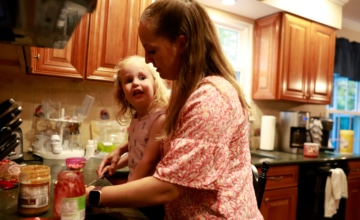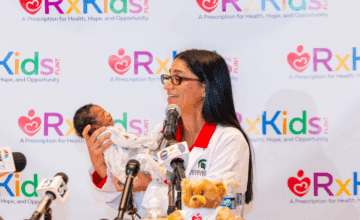North Carolina leads the nation in services to children receiving Early and Periodic Screening, Diagnosis, and Treatment (EPSDT).
This is the result of North Carolina’s participation in The Commonwealth Fund’s Assuring Better Child Health and Development (ABCD) project, started in 2000. In the nearly two decades since, North Carolina has expanded the ABCD program. As noted in the 2016 final performance report, rates of developmental screening and referral increased across the state through the ABCD project. Developmental screening rates improved from 85.2% at baseline to 93.9% and referral rates for children scoring in the “at-risk” category increased from 68.4% at baseline to 76.1%.
In 2004, after participating in the ABCD-I project to pilot developmental screening of children receiving EPSDT in pediatric and family practices, North Carolina amended its state Medicaid policies to require screening with a standardized tool at all well-child visits between 6 months and 5 years of age. This has been done in partnership with the Community Care NC (CCNC) network.
In 2010, Medicaid, implemented a requirement for autism screening at the 18-month and 24-month well-child visits. In 2012, Medicaid recommended routine screening for risks and strengths at annual school-age and adolescent well-visits.
Part of the ABCD project’s success is because children with developmental disabilities are identified earlier, and referrals to the Early Intervention Program are made at an earlier age.
The practices in the CCNC network also focus on family health. Eight of the 14 practices in the CNCC network routinely screen for postpartum depression. With the screenings, there is an emphasis on parental understanding of child development.
The 14 Medicaid case management regional networks have community care coordinators who assist practices with referrals, link families to community resources, and receive Medicaid reimbursement for making those referrals. More than 90% of primary health practices (e.g., pediatric and family medicine) who serve Medicaid-eligible children have integrated developmental and behavioral screening into practice.*
Updated May 2018.




